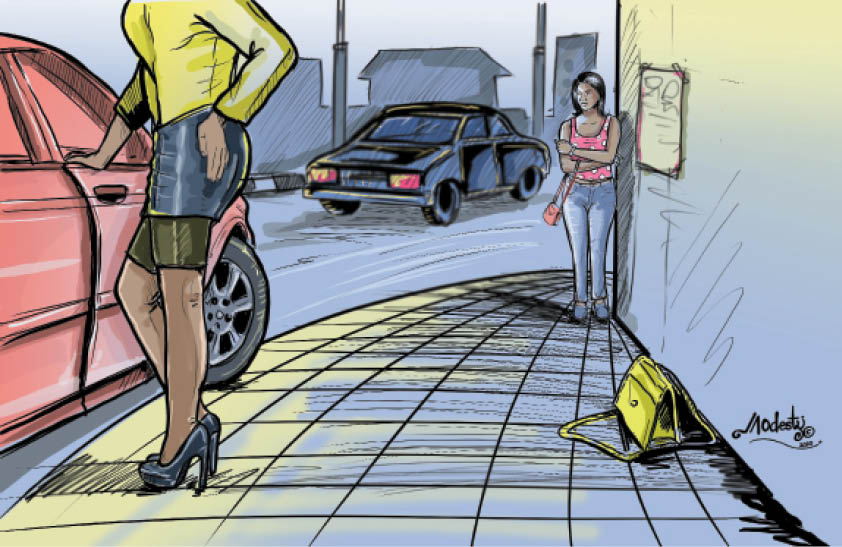‘Most child traffickers are close to their victims’
Sofia (not real name) is a 14-year-old school leaver in one of the south-eastern states. She lives with her widowed mother and four of her siblings. Sofia, who made eight credits including mathematics and English language in her first sitting, desires to further her education but financial constraint is a major problem facing the family. […]

Sofia (not real name) is a 14-year-old school leaver in one of the south-eastern states. She lives with her widowed mother and four of her siblings. Sofia, who made eight credits including mathematics and English language in her first sitting, desires to further her education but financial constraint is a major problem facing the family.
She couldn’t even register for JAMB through which she can gain admission to higher institutions like her mates because she had to hawk to support her mother before she registered for the SSCE examination.
Her maternal aunty, a businesswoman who visited the village from Lagos during the yuletide season, saw her sister struggling to raise these children and offered to take Sofia to Lagos, having noticed how hardworking she is. She promised to sponsor her education in a higher institution and her mother released her, full of hope for her education and future.
Upon arrival in Lagos after a day’s rest, Sofia’s aunty took her to her business place where she runs a restaurant close to a brothel. She introduced her niece to her business while advising her to work hard and save money so she can augment for her education.
Days, however, turned into weeks and weeks into months without her aunty making any move towards Sofia’s desire for academic pursuit. The JAMB for that year also came and went but nothing was done to register her. Then gradually she was, instead, introduced into prostitution despite her protests. Meanwhile, her mother has been left hoping that one day she would hear the good news of her daughter’s admission into one of the higher institutions where she will study, get a job and better the lot of the impoverished family.
The president, Network Against Child Trafficking Abuse and Labour (NACTAL), Adaramola Emmanuel, at a capacity building training for media practitioners in Abuja recently, said child trafficking is real and carried out mostly by those close to the victims.
He said there is need to change the narrative of seeing the seller as the culprit but the buyer too, adding that if there is no buyer, the seller will not make a profit and be forced to abandon the inhuman business. “If there is no demand, there will be no supply,” he added.
Adaramola said human traffickers can be anybody, relatives, neighbours, friends, family members, colleagues, mentors and mentees, guidance and recruitment agencies.
He enjoined parents, no matter the situation, to be careful in entrusting their children to people, noting that many have been sold into slavery, prostitution and other forms of inhuman behaviour all in the name of people wanting to help them.
The focal person for ECOWAS, Mr Olatunde Olayemi, said “We must understand the role of women in patriarchy and we need to start dealing with the idea that women are lesser than men in the society.
“Let us look into how we can protect girls, women and children from trafficking and report the issues so they can be dealt with appropriately.
“ECOWAS sets standard and promotes the interest of women and children by making policy statements and implementing them in their favour,” Olayemi said.
